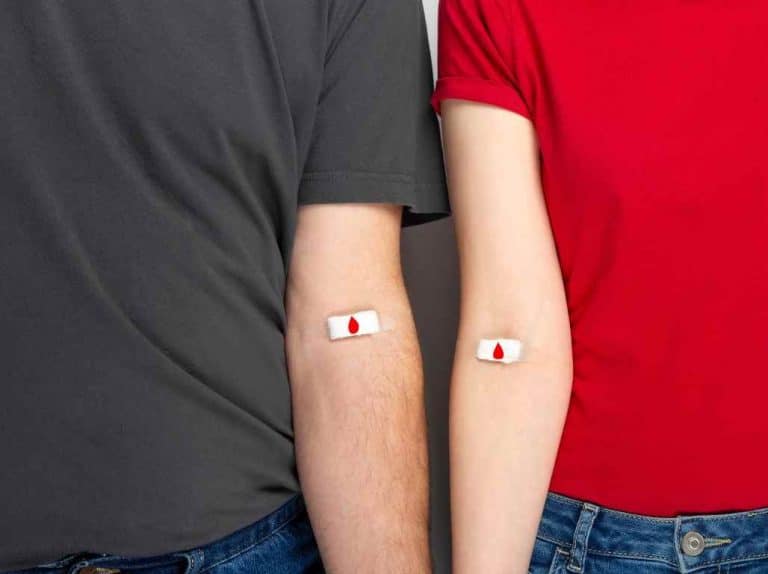Blood Donation Saves Lives In National Blood Donor Month
If you haven’t made a blood donation before, now is the perfect time. Even though donating blood is a noble cause, the world doesn’t have enough blood donors. In the US, about 38% of the population is eligible to give blood but, of that percentage, only 2% actually donate. Due to the low number of blood donors, hospitals are having a difficult time ensuring that they have enough blood for their patients. To encourage more people to donate blood, January was declared to be national blood donor month.
Your Blood Donation Now Will Save Lives
January is the perfect month to honor blood donors and highlight the importance of donating blood. This is because people tend to stop donating blood during the holidays, so starting the year with a selfless act can motivate more people to donate blood regularly. During this month, health institutions and providers make an effort to educate people about the importance of donating blood. By making informative online posts about the benefits of blood donations, setting up blood drives, and giving out rubber bracelets that feature a catchy hashtag to tell everyone that you’ve done your part, they can get their message across to millions of people.
If you want to help the cause and observe national blood donor month by donating blood, here are a few things you have to remember before your appointment.
Check If You’re Qualified For Blood Donation
It’s a fact that the world needs more blood donors, but not everyone can donate blood. To be an eligible blood donor, certain requirements have to be met to protect the health and safety of the donor, as well as the patient receiving the transfusion. The criteria may differ from country to country, but according to WHO, people who are aged between 18 and 65, weigh at least 110 pounds, and are in good health are eligible to donate blood.
Even if you meet these, however, certain factors can prevent you from donating blood on a temporary or even permanent basis. These include the following:
- Taking certain kinds of medications (e.g., aspirin, isotretinoin, and piroxicam)
- Getting a tattoo or body piercing that’s been done in less than 6 months
- Having a dental procedure done, with the wait time for minor procedures being 24 hours while major dental work being a month
- Having a history of using injected recreational drugs
Get Enough Sleep the Night Before You Donate Blood
Make sure that you get around 7 to 9 hours of sleep before you donate blood. You need to be fully rested to donate healthy blood, and getting a good night’s rest can also help you avoid feeling unwell on the day of your appointment. Having enough sleep will also enable your body to replenish the fluids that have been lost during the donation. This way, you’re less likely to feel lightheaded or dizzy after you’ve donated blood.
Eat a Healthy Meal and Drink Plenty of Water
For each donor, about a pint of blood will be collected. Even though it might not look like much, losing a pint of your blood is enough to reduce your blood pressure and make your sugar levels unstable. To prevent this from happening, it’s a good idea to eat foods that are rich in iron and drink plenty of water beforehand. This way, your blood volume levels can be quickly restored and your body can recover from the collection properly.
Wear Comfortable Clothing and Bring Things to Distract You
It’s normal to feel a bit nervous when donating blood, especially when it’s your first time. However, you need to feel relaxed during the procedure to avoid accidental injuries and mishaps. Fortunately, the medical crew handling the donation will help you feel at ease. You can also do things that can help make you feel comfortable while donating blood. One example is by wearing the right clothing. To ensure a smooth and fast donation, it’s recommended to wear sleeveless clothes or clothes with sleeves that can be easily rolled up. You can also distract yourself by reading a book or listening to music. Doing so will help keep your attention away from the procedure, giving you peace of mind.
Avoid Doing Vigorous Activities before and after the Procedure
If you exercise or engage in vigorous activities regularly, it’s in your best interest to avoid doing them before and after you’ve donated blood. Your body needs to stay in a rested state to ensure that it can recover after your blood extraction. Partaking in events that require you to exert yourself might cause you to feel lightheaded and dizzy or to even pass out.
Donating blood is a simple, selfless act that can save and improve lives. One donation is enough to save three people, so it’s no wonder that many see blood donors as heroes. However, there aren’t enough blood donors to supply the global blood demand. The world could definitely use more heroes, and if you want to support the cause, a great way to help is to donate blood during the month for national blood donors.
More Articles About Health To Read
Why You Should Practice Mindful Exercises
Surprising Health Benefits Of Dry January
Dos and Don’ts To Achieve Longterm Recovery





















